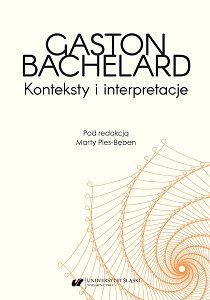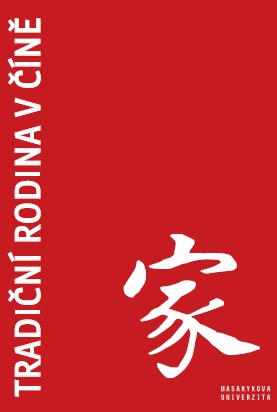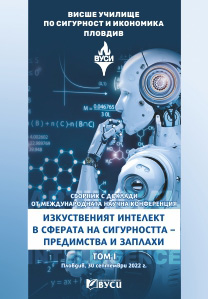
We kindly inform you that, as long as the subject affiliation of our 300.000+ articles is in progress, you might get unsufficient or no results on your third level or second level search. In this case, please broaden your search criteria.


Na poslednjim stranicama knjige Izvori totalitarizma, Hana Arent sumira svoju užasnu priču o erupciji totalitarizma u dvadesetom veku. Ona izjavljuje: Sasvim je u skladu sa čitavom našom filozofskom tradicijom to što ne možemo da pojmimo »radikalno zlo«; ovo važi i za hrišćansku teologiju, koja je čak i đavolu dala nebesko poreklo, i za Kanta, jedinog filozofa koji je, skovavši izraz »radikalno zlo«, morao makar da pretpostavi njegovo postojanje, mada ga je odmah racionalizovao u predstavi o »izopačenoj zloj volji«, koja bi se dala objasniti razumljivim motivima. Tako mi, dakle, nemamo nikakvu potporu kada pokušavamo da razumemo fenomen koji nas suočava sa nadmoćnom stvarnošću i koji ruši sva nama poznata merila. Samo se jedna stvar čini jasnom: možemo reći da se radikalno zlo pojavilo zajedno sa sistemom u kom su svi ljudi postali podjednako suvišni. Manipulatori ovog sistema veruju u sopstvenu suvišnost koliko i u suvišnost svih drugih, a totalitarni dželati su tim opasniji što ne haju za to da li su i sami živi ili mrtvi, da li su ikada živeli ili možda nikada nisu ni rođeni. Fabrike leševa i pećine zaborava opasne su zato što se danas, sa sve većom prenaseljenošću i sa sve većim brojem beskućnika, mase ljudi stalno smatraju suvišnima, bar sa strogo utilitarnog stanovišta. Političke, društvene i ekonomske tendencije širom sveta su u dosluhu sa totalitarnim institucijama koje služe tome da ljude učine suvišnima.
More...
Hana Arent se ponekad smatra važnim izvorom ili nadahnućem savremene komunitarne političke misli. U tom shvatanju postoji izvesna mera istine, ali misliti o njenoj političkoj teoriji kao izrazito komunitarnoj više je nego pogrešno. Jer, ono što karakteriše komunitarizam kao filosofsko osporavanje liberalizma jeste njegovo naglašavanje toga kako se sopstvo konstituiše kroz kolektivni ili grupni identitet, kao i argument da nedovoljna pažnja prema snazi zajedničkih identiteta obeležava središnji nedostatak liberalno-individualističkih koncepcija političke zajednice.
More...
Čini se da je karika koja nedostaje, a koja povezuje mladalačke tekstove Hane Arent sa njenim kasnijim, slavnim delima o totalitarizmu, upravo shvatanje ljudskog života kao političkog delovanja koja se otkriva u jeziku neke pripovesti ∞une histoire≤ (story i history). Pre nego što pročitamo njene zrele tekstove, potrebno je, dakle, da se pozabavimo onim što nam izgleda kao apologija pripovedanja kod Hane Arent, a što dijagonalno preseca čitavo njeno istraživanje.
More...
This paper deals with Derrida’s introduction of Levinas’s concept of trace into the thinking of différance. Since his earliest reading of that concept – in Violence and Metaphysics – was highly negative and exclusive, there obviously happened some change of perspective. In order to explain it, the author reached for Derrida’s idea of writing as grafting, considering his earlier refusal of Levinas as the “silent” entry of graft “Levinas” in his writing.
More...
This article focuses on an analysis and evaluation of the importance of Marx’s theory may have for Derrida. First, it is argued that the deconstructive reading of Marx’s texts is to be seen as the way toward the articulation of the politics and ethics in Derrida’s work. Second, the article maintains that the interpretation of Marx’s critical theory depends on the Derrida’s dealings with Levinas. I emphasize especially the significance of the phenomenology in this context, in fact, the importance of the Derrida’s dealing with the phenomenology of otherness. Third, I critically analyse in particular the concepts of absolute hospitality and messianistic coming. The conclusion is the next: Marx is, nolens volens, treated in Derrida in the light of the contradiction between ethics and politics.
More...
The author re-examines so-called “normativity problem” in the light of some Derrida’s provisional definitions of the concept of deconstruction. Alleged unbreakable connection between the elementary Derridian conception and the concept of normativity here is criticized with help of “open question argument”.
More...
Materiál pre túto štúdiu som získal počas stacionárneho terénneho výskumu v segregovanej rómskej osade na východnom Slovensku v rokoch 2005 – 2006. Tento výskum síce nebol zameraný primárne na ekonomické a finančné správanie, avšak pri celkovej každodennej etnografii v danej komunite som sa pochopiteľne nevyhol ani iným témam, z ktorých – vzhľadom na chudobu a úsilie vyžiť z minima – bola kľúčová práve téma finančného správania sa. A keďže obyvatelia tejto rómskej osady neustále zápasili s konštantným nedostatkom financií, požičiavanie si, často na vysoký úrok, bolo pre mnohých každomesačnou realitou. Moju analýzu opieram najmä o výskum z tejto konkrétnej osady, no počas nasledujúcich rokov a výskumov som sa s fenoménom úžery parciálne stretával ďalej aj v iných lokalitách, čo mi umožnilo reflektovať mechanizmy úžery aj v širšej rovine.
More...
The article analyses the main theoretical models of social justice in contemporary society. The aim of the research is to reach conclusions on the conceptual and functional relationship between the modern concept of the rule of law and social justice.
More...
Our war and post-war experience has been marked with terrible and widespread sufferings of civilians. As one of the central questions in dealing with the past and peace-building processes in the Croatian society, we ask ourselves how we can offer adequate support and contribute to providing justice and reparations to civilian victims of war. In doing this, we create and support research, analytical, educational and public political activities, but also methods of direct support to civilian victims of war. Compensations and reparations to victims are one of the key elements of transitional justice. They enable victims to receive public recognition of their suffering and compensation for the endured pain, humiliation and losses. By setting up reparations programs, the state implements a system of respecting human rights and answers the needs of victims as one of the most endangered social groups, groups in constant risk of social exclusion and bad socio-economic situation. The state is obliged to deliver justice and ensure their citizens full respect of human rights, and victims have the right to protection and safety. Reparations come in many forms, from legal mechanisms through symbolic and material reparations to group or individual reparations programs. According to the resolution Basic Principles and Guidelines on the Right to a Remedy and Reparation for Victims of Gross Violations of International Human Rights Law and Serious Violations of International Humanitarian Law, civilian victims of war have the right to adequate, efficient and timely reparation.
More...
Naše je ratno i poslijeratno iskustvo obilježeno teškim i brojnim stradanjima civila. Kao jedno od središnjih pitanja suočavanja s prošlošću i izgradnje mira u hrvatskom društvu postavljamo si pitanje kako pružiti odgovarajuću podršku civilnim stradalnicima te doprinijeti ostvarenju pravednosti i obeštećenja civilnih žrtava rata. Na tom putu kreiramo i podupiremo istraživačke, analitičke, obrazovne i aktivnosti javnog političkog djelovanja, ali i metode neposredne podrške civilnim žrtvama rata. Ovim tekstom željeli bismo ćitatelje/ice iz organizacija za ljudska prava i drugih organizacija i inicijativa iz civilnoga društva upoznati s našim djelovanjem posljednjih godina putem nekoliko primjera iz prakse koji sveobuhvatno nastoje unaprijediti položaj civilnih žrtava rata u ostvarenju njihova prava na odgovarajuće obeštećenje.
More...
What I discuss in my paper is the following: Does science deal only with facts? Does ethics deal only with values? It is shown as, in the science progressive working, what is, what has to be, what can be, and what ought to be are interconnected. The rationalistic and humanistic tradition about the way to make science and to teach it can establish a modern progressive education.
More...
Historically, the manifestations of Bulgarian dreams are analyzed. Consider the extent to which endogenous and exogenous factors and conditions allowed dreams to come true. The Bulgarian dream for honest labor, creativity and life in their homeland was established back in time – more than 1300 years ago. During all the distinct periods (from internal and external conditions and factors), this dream has undergone substantial alternations, however, not in its roots. My generation has experienced two signifi cant changes to our dream. The fi rst distinct period began in the distant 1945 when the dream was to ensure the livelihood, health and education of all Bulgarian citizens through the system of socio-economic planning in Bulgaria and in the CMEA. Society and the economy were systems, whether, businesses and people – inseparable elements of these systems. The second distinct period began in 1990 when the creation of the „Common European Home“ began on the basis of the „decomposition of the planned economy“ and the affi rmation of freedom of personality and human rights. During this second period, the European countries, Bulgaria, and the individual economic agents were placed in a competitive environment – „whatever you do, you do it for yourself.“ Society and the economy have become clusters in which the horizontal ties (seemingly) were dominant. Both, the first and the second, periods possessed their merits and defi ciencies, which suggests that potentially the Bulgarian dream has to redefi ne its format, as well as, its content.
More...

Genocid se definira kao zločin par excellence, najgore što čovjek može uraditi drugom čovjeku u smislu prava i morala. I opet, od Aušvica do Kambodže i od Ruande do Srebrenice, od jedne epohe i kulture do druge, počinilac genocida insistira da je njegov cilj pobjeda dobrog nad zlim te da je stoga moral na njegovoj strani. Ono što vanjski svijet može osuditi kao pogrešno i zlo oslikano je kao suprotno, jer radnje koje se moraju poduzeti da bi se osiguralo ono što je istinski vrijedno nadjačat će sve ono što mu prijeti. Ubijanje je predstavljeno kao legitimna samoodbrana, te želja da se u tome ne učestvuje kao moralni pad, izdaja grupe kojoj pripada i čija je budućnost u pitanju. [...]
More...
Transhümanizm ve posthümanizm insanın şu andaki halinden farklılaşacağını, bir tür evrimleşmenin meydana geleceğini iddia etmektedir. Bu evrimleşmenin ise aşamalı olacağı, transhümanizmin sonunda, kaçınılmaz olarak, posthümanizme ulaşacağı bazı transhümanistlerce iddia edilmektedir (Ferrando 2013). Aşağıda örneklerle açıklandığı üzere, söz konusu değişimin anahtarı ise biyoteknolojidir. Biyoteknoloji; bilim ve teknolojinin, insan üzerindeki uygulamalarının birleşme noktası olarak kabul edilebilir (Ferrando 2013).
More...
While God is the creator and giver of life, man can become co-creator in having offspring by following His command to “increase and multiply, and fill the earth and subdue it” (Gen 1: 28). Man's synergy in the creation of life is expressed by the free will of the future parents and is reflected in the resemblance between the parents and the child, due to the laws of heredity. Parenthood is therefore not determined solely by God, but it is also shaped by man based on his personal desires and goals. At the same time the notion of man as a cocreator indicates that his reproductive freedom should be in accordance with divine providence and wisdom. Therefore, procreation should not only be understood as a personal right, but also as a significant responsibility, both towards God and the child who comes into existence. The theological understanding of man as co-creator allow us to come to some conclusions regarding the ethics of termination of the unborn human life through abortion, and the human desire to overcome the obstacle of infertility through the methods of assisted reproduction.
More...
Modern medical science aims at the benefit of the patient which is achieved through the treatment of the patient. The physician must act in the best interest of the patient and consequently his health. In an ideal world every doctor besides treating a patient would also love him. In this text, there will be examined two fundamental ethical imperatives that can be applied in the doctor – patient relationship. On the one hand the position, do not do unto others as you would not like to do unto you, on the other hand the positive formulation of that sentence which is, do to others whatever you would like them to do to you. The first of those two positions can be found in the ancient oath of Hippocrates, whereas the second position is the basis of the Golden Rule of Christian ethics. These two ethical imperatives will be examined in the context of modern bioethics as well, since the benefit of the patient is the major concern of two of its basic principles, namely the principle of beneficence and that of non-maleficence. The oath of Hippocrates moves in the realm of the moral idea that you should not do to others what you do not want to be done to yourself. The above position is based on the affirmative propositions that are imprinted within the oath. On the other hand, the Golden Rule of Christian ethics consists of a positive exhortation, to do to the other what you would like to happen to you. Each Christian is called to love his fellowman as he loves himself, since the supreme good in Christian morality is the love of God and fellowman that fulfills the purpose of man’s existence, which is the communion with God. Both positions examined in the text have relevant content, aiming at the benefit of the patient, the patients good, either by a direct positive obligation, or by preventing the doctor from harming the patient.
More...
Rodina je základní společenskou jednotkou, která se jako pojem velmi obtížně vymezuje. K zápisu rodokmenů používáme graf (viz ilustrace 1.2), který by měl být alespoň dvougenerační. Muž se zapisuje symbolem trojúhelníku, žena symbolem kruhu. Neurčitý počet dětí, či jenom všeobecný zápis potomků značí symbol čtverce. Jedinec se nazývá ego a jeho generace se nazývá nultá. Graf čtený z hlediska jedince se nazývá egocentrický. Graf čtený z hlediska potomků je grafem prokreační rodiny – jinými slovy se orientuje na budoucnost. Graf z hlediska předků je grafem orientační rodiny čili je orientovaný na minulost.
More...
The report examines the possible security risks associated with ensuring the ethical behavior of artificial intelligence systems.
More...